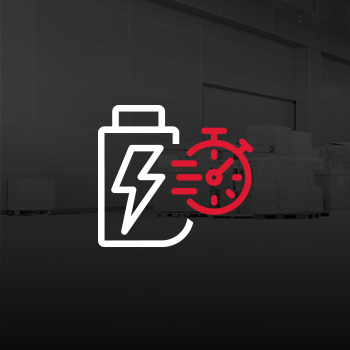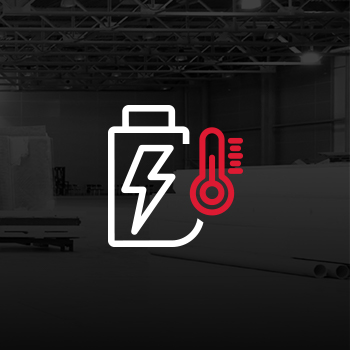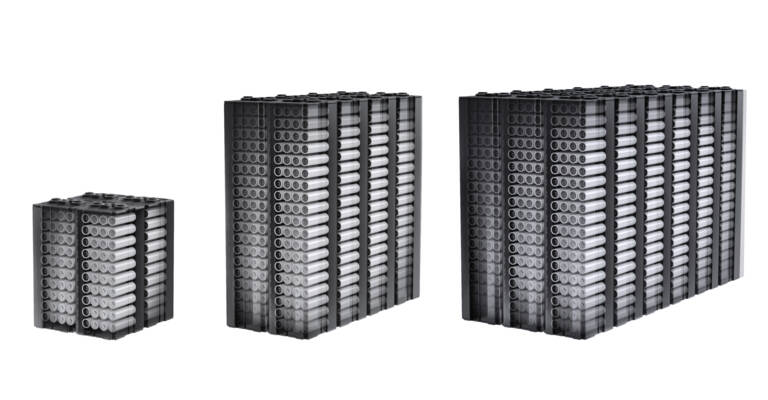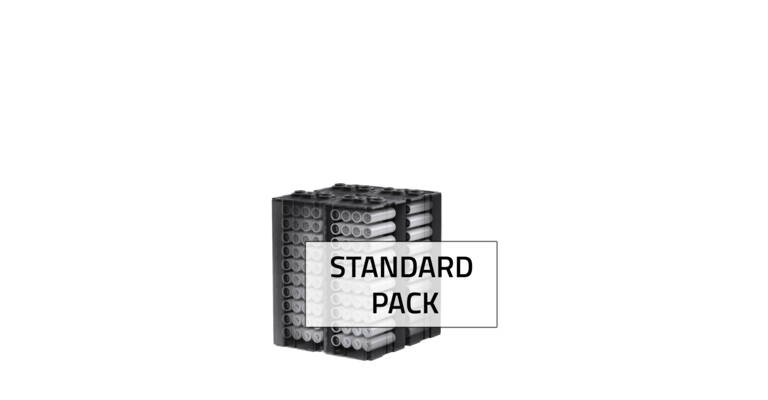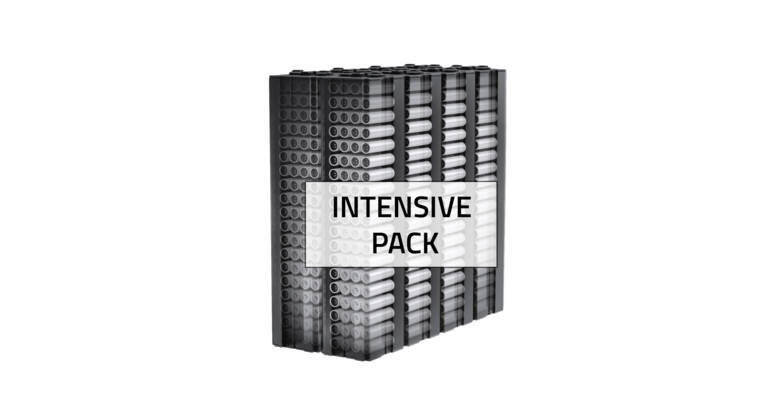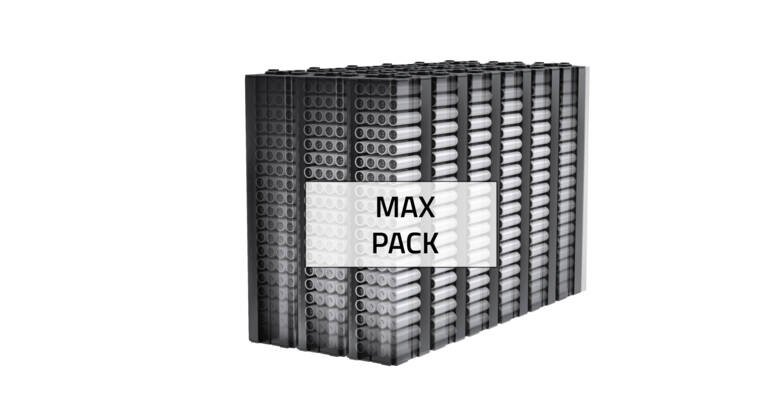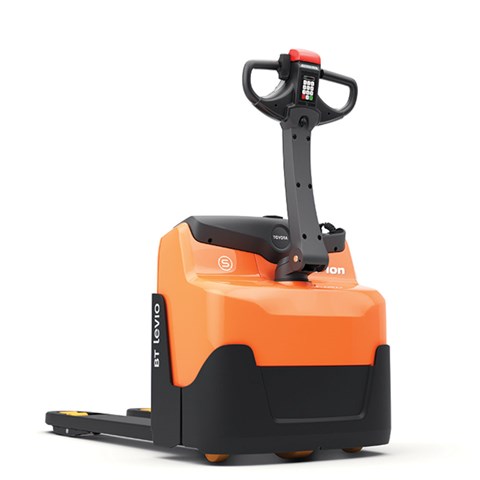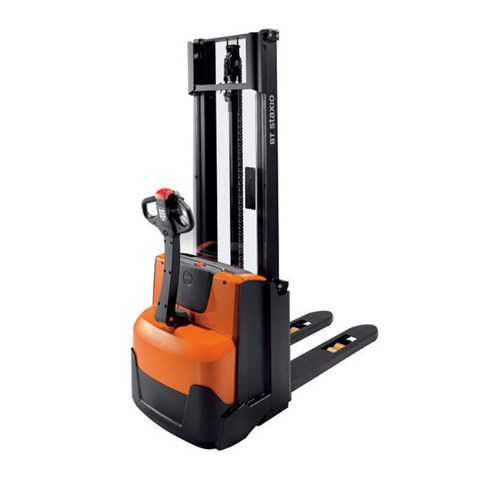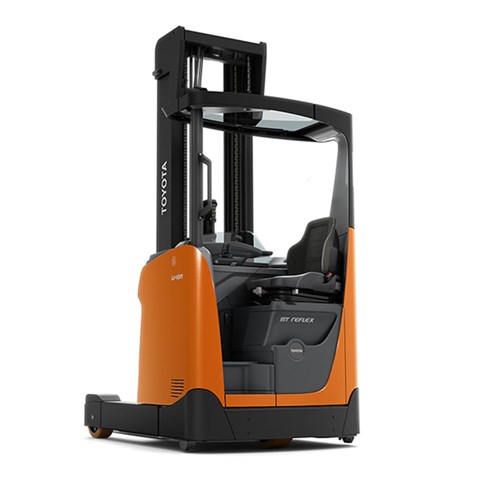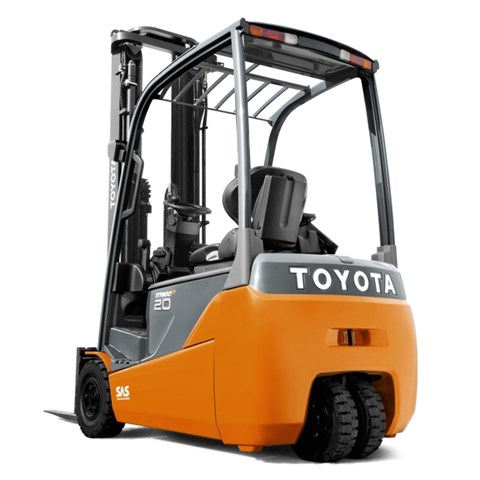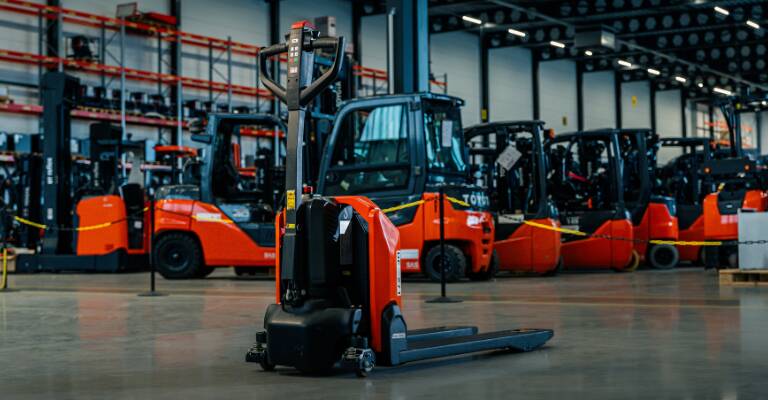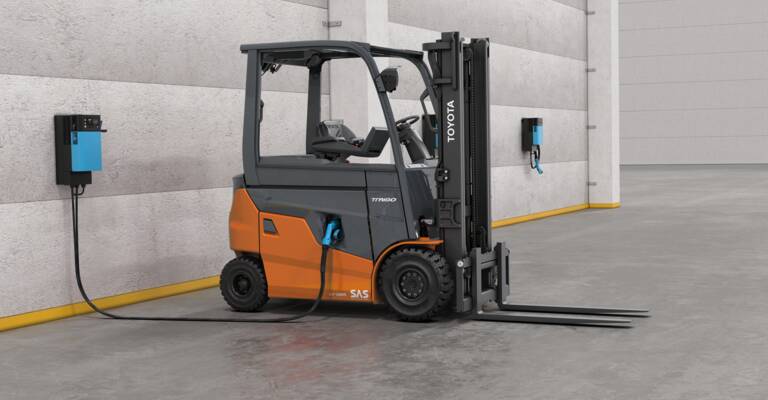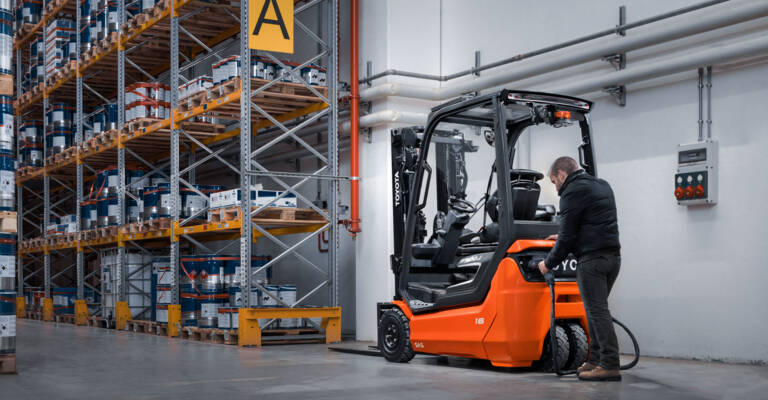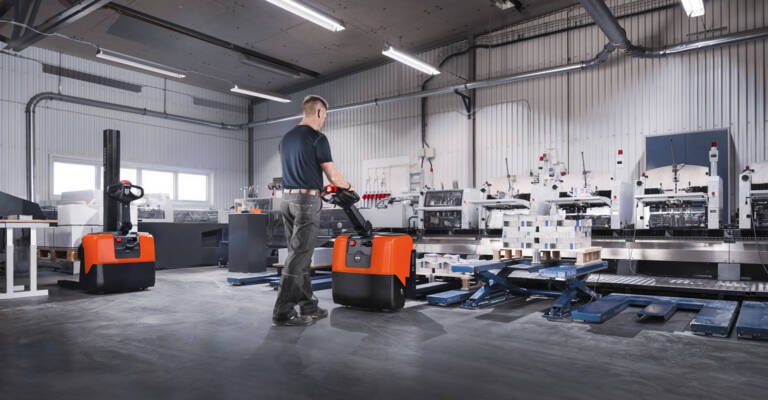Lithium-ion battery solutions from Toyota
Four reasons to choose lithium-ion batteries for your forklift
Energy Efficiency
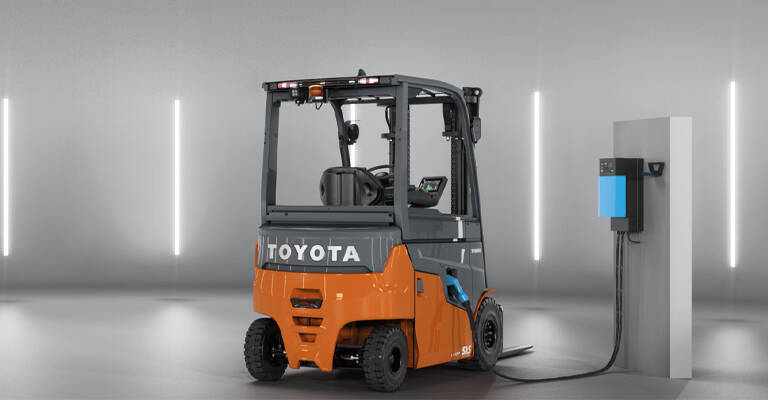
Greater energy efficiency means lower costs and lower emissions. Lithium-ion batteries provide a wide variety of efficiency advantages, from consistent power delivery to faster charging capabilities. Exploring lithium-ion forklift battery options can help you achieve your sustainability and commercial goals.
Higher power density
A li-ion battery uses “lithium salt” as electrolyte which, mixed with other chemical elements, improves its performance and durability. The advantage over other batteries is their ability to store a high energy density in a small space. Toyota uses NCA cells (Lithium Nickel Cobalt Aluminium Oxide). This ensures our lithium-ion batteries can contain more energy in the same volume – it’s the same cell chemistry used in electric cars!
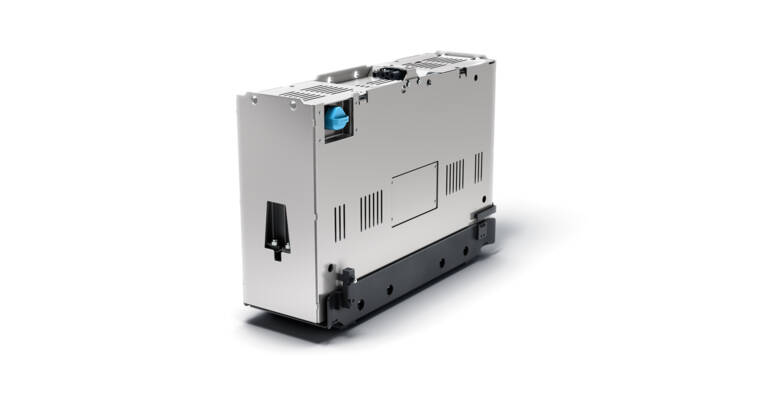
As a result, Toyota’s lithium-ion batteries can withstand a high number of load cycles and have electronic controllers that ensure their reliability and safety. This translates into less energy loss in charging cycles, better use of stored energy and the ability to always provide maximum power.
Reduce your emissions
The cells we use for lithium-ion battery assembly are sourced from a major OEM that shares the same environmental values as Toyota. We are committed to helping all our customers embed sustainability in their operations; we estimate that switching to a lithium-ion battery solution can reduce your CO2 emissions by as much as 20% across all applications.
Productivity
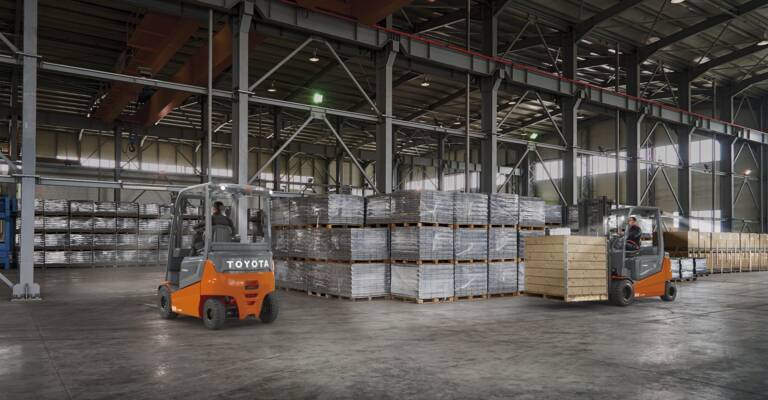
Are your forklifts running as effectively and efficiently as they could? We know the costs and issues surrounded with unplanned downtime. Lithium-ion batteries are an excellent choice for keeping this to a minimum. They generate less heat than alternative power options and improve the ability to deliver stable voltage no matter what level of charge they have. This allows an efficiency improvement of up to 30% over traditional lead-acid batteries.
We are always working to advance our technology and provide even more productivity benefits. Field tests with our new 630Ah capacity battery have indicated that a single battery charge will enable a Reflex to work flat out – both lifting and driving – for more than a full eight-hour shift, without any charging whatsoever.
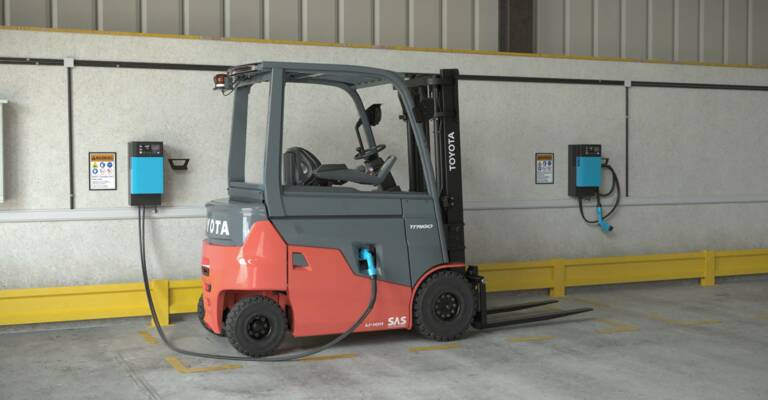
Even more productivity benefits
- Opportunity charging – can be recharged at any time and level without affecting battery life. This makes loading times more flexible and ensures trucks remain in service when needed.
- Rapid charging – A 25V Lithium-ion battery is fully charged in only 80 minutes, and you only need 30 minutes charging time for 50% battery capacity. Furthermore, Toyota smart chargers come with Dynamic Power Limitations (DPL) as standard, which reduces the height of your ‘peak demand’, thereby managing your overall energy use and costs. It also means the majority of the power will be sent to the truck that needs it most when charging multiple forklifts.
- Batteries that last as long as your truck – The useful life of the lithium-ion battery is equivalent to the useful life of the truck, without the need for new investments to maintain the equipment or the need for second sets of batteries.
- No charging rooms – Lithium-ion chargers are easy, safe and ergonomic to use. They can be located anywhere in the facility rather than needing a dedicated charging room – which frees up warehouse space that can be used to optimise flows and maximise the efficiency of your entire operation.
Safety
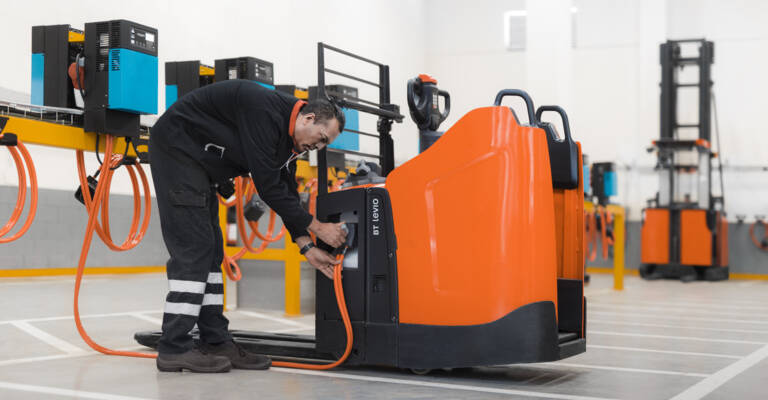
Safety and wellbeing are critical parts of any successful forklift operation – that is why we offer several training courses for operators and warehouse managers. However, forklift safety stretches way beyond the operator. Battery and forklift charging is not without its risks, as can be expected with electrical equipment. As a company with safety and quality at its heart, we have gone the extra mile to ensure our lithium-ion batteries deliver a range of safety benefits.
All our lithium-ion batteries use cylinder-shaped cells that do not touch each other. This means, if there is a safety hazard with one cell, it will not directly impact the other cells next to it. Cylinder cells are also harder to penetrate, and are much more resilient to shock and vibration, making them the best choice for covering a wide range of MHE applications.
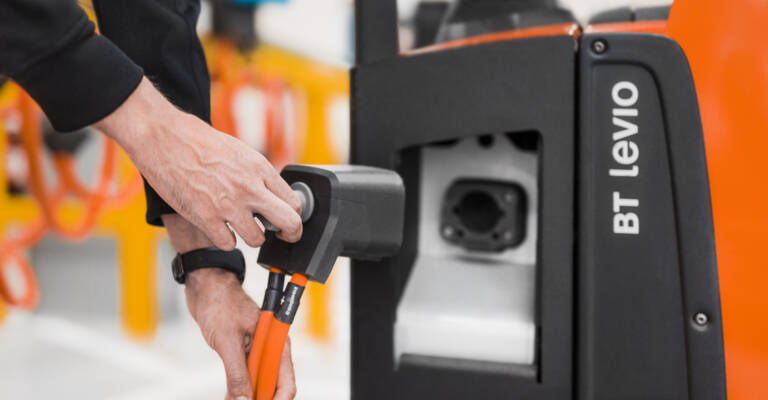
Safety in every component
A lithium-ion battery consists of several cells that are assembled in one module. Depending on the size of the battery, several modules are connected in series and form a battery system. Each module is equipped with a safety system (BMS battery management system). The complete battery system also has a superior BMS that controls the battery’s total activity (charge / outlet).
Compliance with latest battery regulation
In accordance with battery regulation (EU) 2023/1542, our lithium-ion batteries come with the EU Declaration of Conformity regarding battery performance and durability and the Product Data Sheet and Safe Handling information to support transparency, safe handling and regulatory compliance for our battery-containing products.
Battery information for warehouse trucks >
Battery information for counterbalanced trucks >
Adaptability
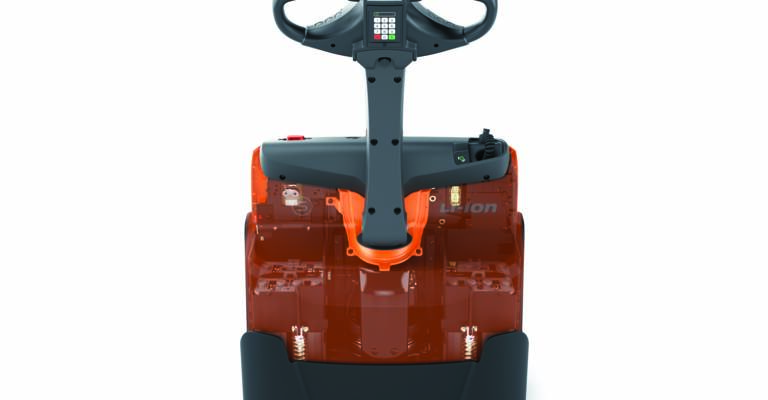
Whatever your business focus and forklift application, lithium-ion batteries can offer greater efficiency and higher performance. Suited to working in both hot and cold environments, they deliver an all-round solution to material handling.
Modular design reduces weight and servicing requirements
Did you know? A 50Ah battery will supply enough power for 70% of small power pallet truck applications – which means a full-size lithium-ion block could be adding more power, and weight, than you need. Toyota batteries don’t have this issue. They work on a modular principle, combining the right number of modules to deliver the required power without adding unnecessary cells and weight. Modules can also be replaced one at a time, meaning servicing is quicker, simpler and requires less stock.
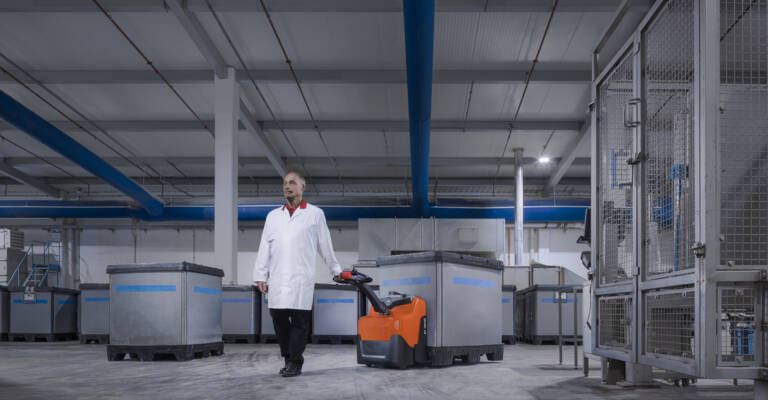
In-house assembled lithium-ion solutions from Toyota offer energy savings, service-friendly operations, and enhanced safety. Battery power loss is minimal, and opportunity charging is possible. Furthermore, unlike lead-acid batteries, lithium-ion batteries only lose minimal performance when operated in cold storage situations.
Chilled environments
Our standard Li-ion batteries are suitable for chilled environments and non-intensive work in cold store, when charging can be done at a minimum + 5ºC, e.g:
- Approx. 2h operating time at -30°C
- Approx. 4h operating time at -10°C
Cold store environments
When operating forklifts for more than 2 hours or by any chance left unused in temperatures down to -30ºC, we recommend heated lithium-ion batteries, which allows for charging inside the refrigerated area. The less frequently the trucks need to go outside for charging, the fewer condensation issues you will face. Furthermore, battery power can be reduced by 5-10% to always guarantee an optimal temperature for the equipment.
Intelligent Energy Packs
Know and go
We trust we convinced you of opting for lithium-ion batteries on your new forklifts, the benefits are very convincing! We would like to highlight a few of our models from our extensive electric range that you might want to look into.
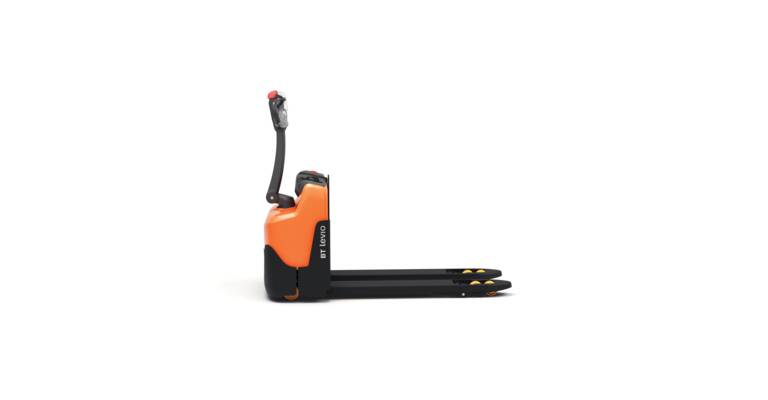
Compact, light and agile
- Highly energy-efficient
- Easy to manoeuver
- Ideal for confined spaces
- Built around Li-ion
Recommendations:
Toyota BT Levio LWI160 is a powered warehouse truck ideal for working in confined spaces such as retail sales areas, shops and supermarkets.
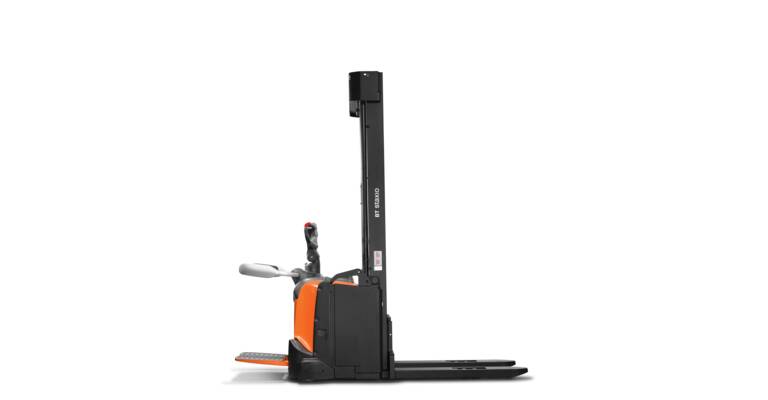
Fast and easy manoeuvrable
- Easy steering
- Ideal for long-distance transport
- Also pedestrian versions
- Available with Li-ion
Recommendations:
Our SWE/SPE stacker range covers many different models and features to suit your transport needs.
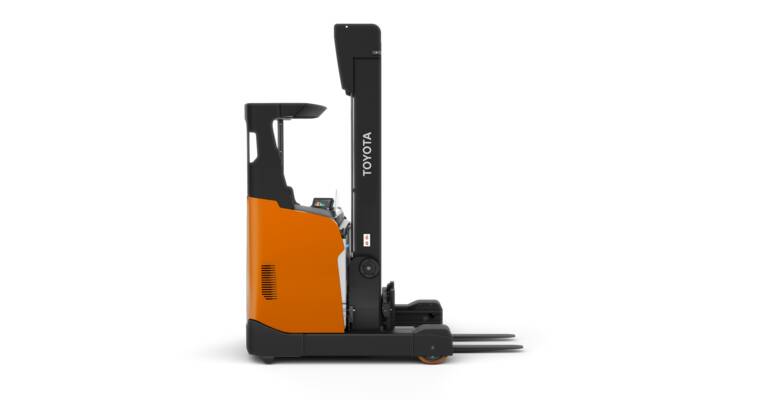
Productive and comfortable
- Proven innovation
- Ergonomic operator compartment
- Lifting capacity up to 13 m
- With intelligent li-ion energy packs
Recommendations:
Our reach truck range is wide and can support many different applications: indoor, outdoor and in confined spaces.
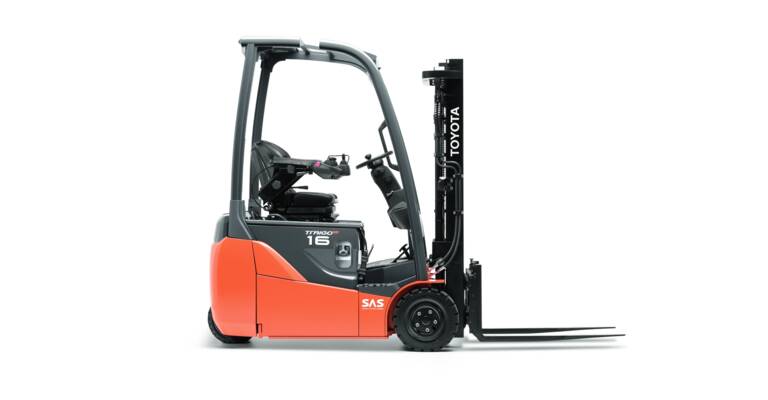
Efficient indoor and outdoor
- High manoeuvrability
- Available in 3 & 4-wheel version
- Armrest with fingertip control
- Available with Li-ion
Recommendations:
The Traigo 48 models are very energy-efficient, come with excellent all-round visibility and high lifting and driving performance.
Get battery insights from I_Site
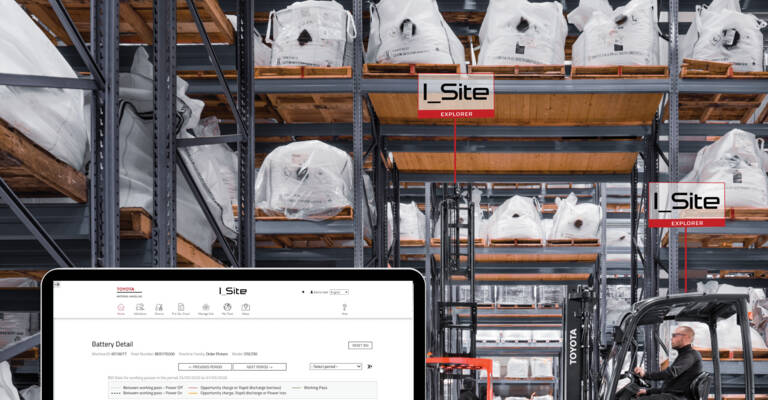
Lithium-ion batteries present new opportunities for more flexible charging. Unlike lead-acid battery alternatives, the life expectancy of lithium-ion is not affected by charging frequency. In fact, opportunity charging is actively encouraged to maintain the uptime of operations. Using I_Site Explorer, it is possible to track your battery charge levels and ensure they are always charged to optimum levels. Charging a truck while it is idle will allow you to use fewer batteries and minimise the risk of suffering unplanned downtime.
Got any more questions about lithium-ion batteries for forklifts? Visit our FAQ page here>>
Customer stories about Lithium-ion
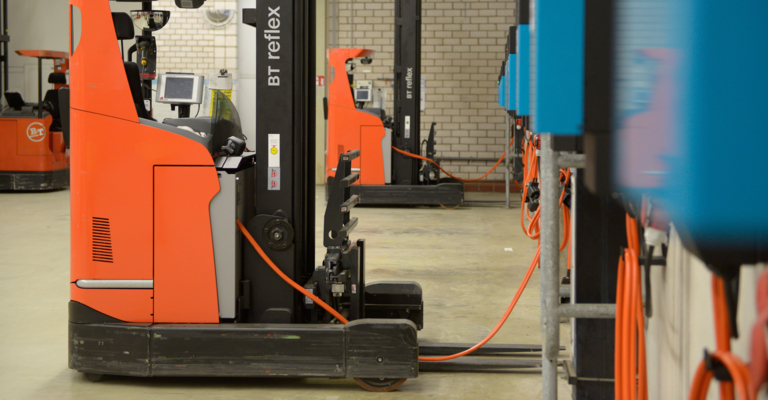
“Toyota calculates charging cycles according to our needs;
employees are provided with training on when to charge,
so we can ensure that the operating times of the
devices are appropriate to the shift patterns.”
Ronald Ganther, Head of Inbound, Hermes Fulfilment

